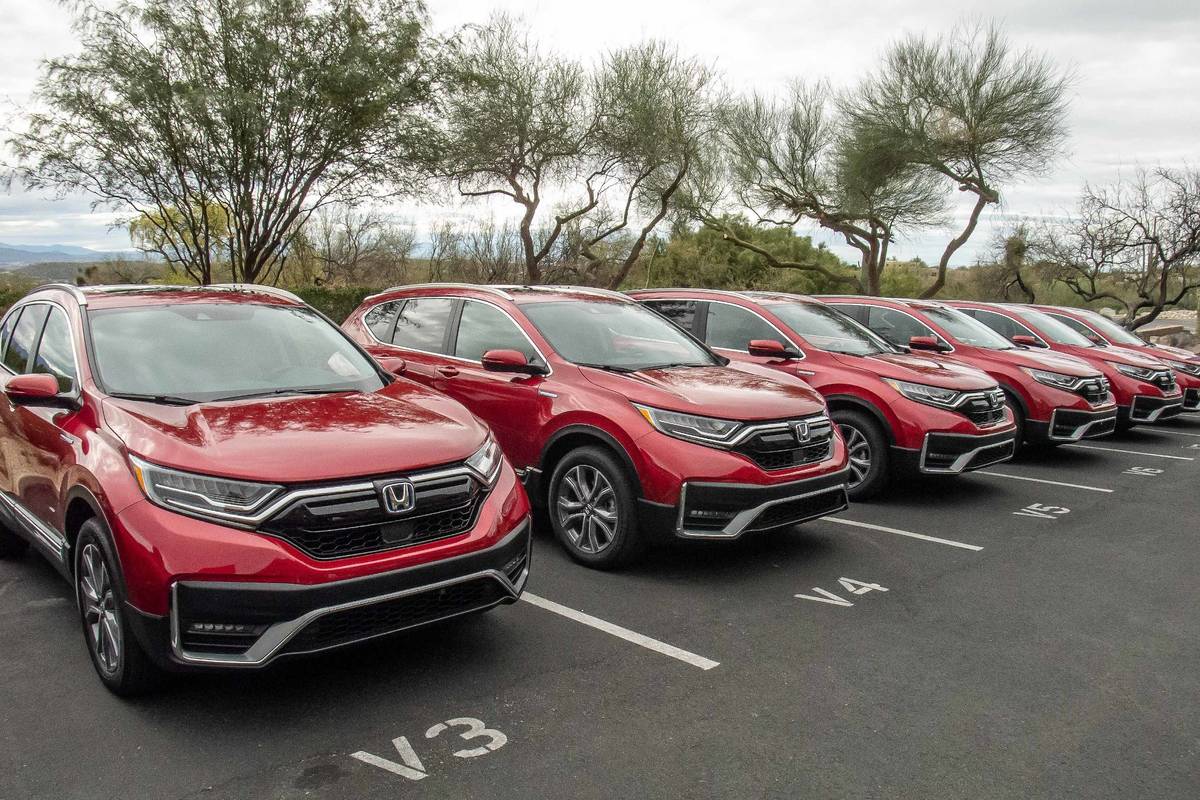What Is a Fleet Vehicle, and Should I Buy One?


According to the National Automobile Dealers Association and Wards Intelligence, about 16% of new-vehicle sales in 2023 were fleet purchases — a car or truck bought by a rental car company, other type of business or a government agency that buys vehicles in bulk, from three or four at a time to tens of thousands per year. Eventually, most of those approximately 2.5 million fleet vehicles purchased annually will wind up on used-car lots or for sale online. Rental cars are most likely to be the first to show up in the used-car market; government-owned vehicles will typically be the last.
Should you buy one? With any used fleet vehicle, there will be pluses and minuses. Consider the below before moving on a purchase.
Related: More Car Buying Advice
Cons
Fleet vehicles are often driven by several different drivers, some of whom don’t treat them with TLC. The ones that get the hardest use are those that toil in urban areas, such as taxicabs, police vehicles, and cars and trucks owned by public utilities. These vehicles spend much of their lives in stop-and-go driving on bumpy streets with a lot of idling, which automakers describe as “severe use” in their owner’s manuals and maintenance guides. This driving is hardest on the engine, transmission, brakes and suspension.
Another con is that fleet vehicles can rack up a lot of miles in a hurry. Taxi companies, utilities, police departments and other government agencies tend to keep vehicles in their fleets for several years, and they often have well over 100,000 miles before they get retired from active duty. Though they frequently come with beefed-up suspensions and other heavy-duty components, buying one of those vehicles is like giving a big contract to an aging professional athlete whose best years are long gone. They also come with a higher risk of major repairs down the road.
Pros
Among the pluses is that these vehicles generally receive regular maintenance, such as oil changes, air filters and brakes. For example, rental cars are usually well maintained and have comprehensive maintenance records.
Rental cars tend to be used more for highway driving than government or taxi fleets, too. Sure, they get driven in cities, but rentals that rack up 20,000 miles in a year probably did most of it on the open road because people rented them for vacations.
Some advisers caution to never buy a used rental car because they are driven by different drivers almost daily, some of whom deliberately trash these vehicles, especially if they (or their employer) ante up for a damage waiver. But while some drivers probably do trash rental cars, most renters drive them carefully so they don’t get dinged for any extra costs, especially those who decline the expensive damage waivers.
Moreover, rental companies often buy fleet vehicles and are the biggest source of 1- and 2-year-old used cars, and they generally sell their vehicles after a year or two. Typically, rental companies warranty the powertrain and other components for 12 months or 12,000 miles, plus the balance of the manufacturer’s warranty. Some allow test-driving a vehicle as a rental for up to three days, too, and the rental cost is waived if the vehicle ultimately is purchased.
Used-car dealers sell a lot of ex-rental vehicles, as well. Many certified pre-owned vehicles that franchised dealers sell also come from rental fleets, and they’re supposed to be the cream of the used-car crop. A Carfax, AutoCheck or other history report for a used vehicle will show if it was once a rental car.
More From Cars.com:
- Should I Buy a New or Used Car?
- Questions to Ask a Car Seller
- How Do I Get a Free Carfax Report?
- Find Your Next Car
Take These Precautions
If you take the usual precautions that you would when buying any used vehicle, purchasing a used fleet vehicle should be OK.
- With any used vehicle, you are buying unused miles, so the fewer miles on the odometer, the better — and highway miles are kinder and gentler than city miles.
- A manufacturer’s warranty will be far more comprehensive than any warranty provided by the seller, so buy a vehicle that still has the original warranties. The more warranty left, the better.
- If a vehicle history report is not provided, purchasing one is a good idea because it should show more information than what the seller provides, such as accident damage.
- Have the vehicle inspected by a qualified independent mechanic for its mechanical condition and any signs of rust or physical or water damage.
Related Video:
Cars.com’s Editorial department is your source for automotive news and reviews. In line with Cars.com’s long-standing ethics policy, editors and reviewers don’t accept gifts or free trips from automakers. The Editorial department is independent of Cars.com’s advertising, sales and sponsored content departments.

Contributor Rick Popely has covered the auto industry for decades and hosts a weekly online radio show on TalkZone.com.
Featured stories




